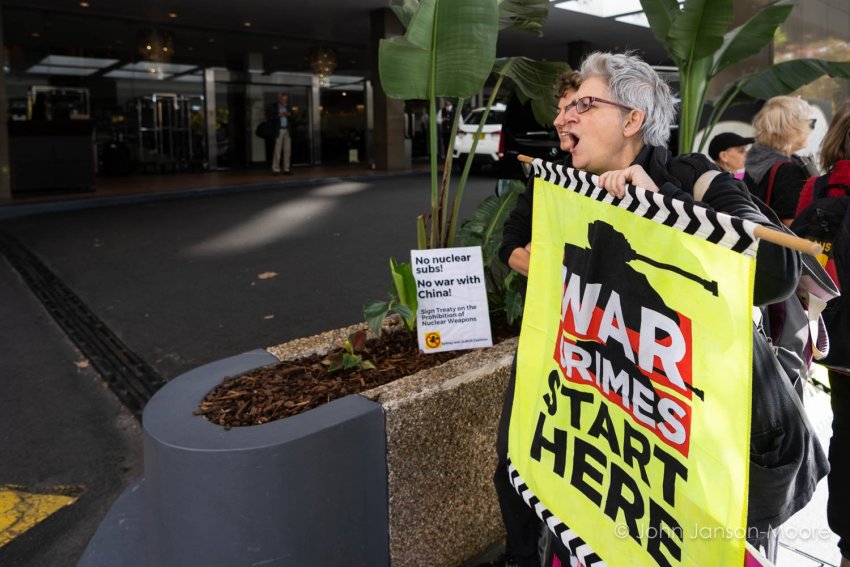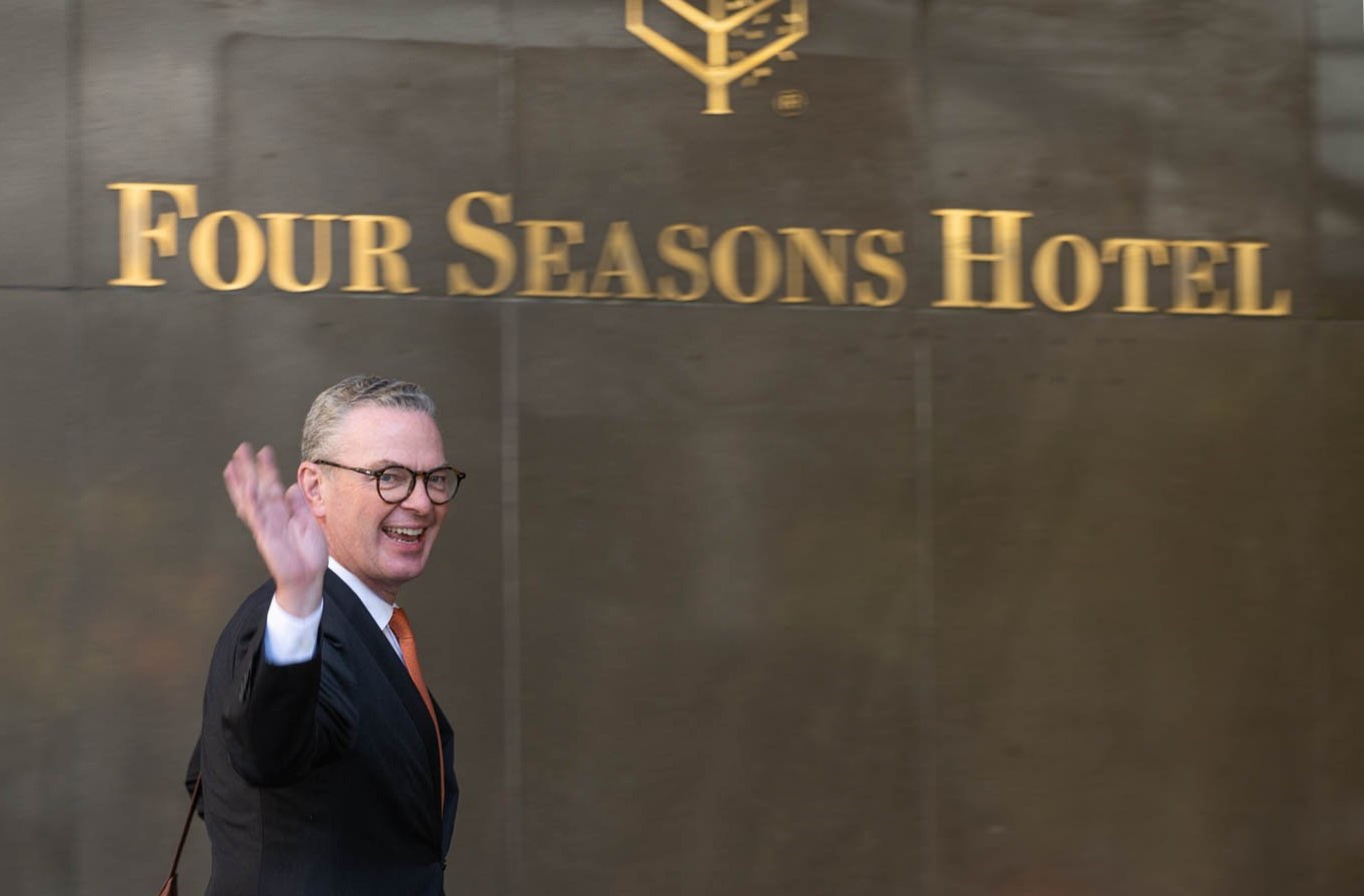
“Money for health and education, not for war and devastation!” rang out as arms lobbyist and former Coalition Defence Minister Christopher Pyne arrived at the two-day Defence Strategic Review (DSR) Summit on May 3.
Anti-war protesters heckled a smirking Pyne, who boasts on his website he was responsible for delivering a $200 billion build-up of military capability — the largest in peacetime history.
They held signs which read: “Scrap AUKUS now!”, “No war on China!” and “Sign the Treaty on the Prohibition of Nuclear Weapons”.
Inside, a protester called out: “We want hospitals and public housing. We don’t want those nuclear submarines.”
Defence minister and Deputy Prime Minister Richard Marles was a keynote speaker at the event which said it would “provide expert analysis on the strategic direction of defence”. It boasted it would give advice on how best to profiteer from weapons’ production in a “rapidly-evolving landscape”.
The Sydney Anti-AUKUS Coalition said Labor’s recently released DSR, along with the AUKUS nuclear submarine plan, marks a “significant shift” towards military aggression against China.
When defence minister, Pyne started Australia on a path to becoming among the top 10 arms exporter in the world. AUKUS funding will help make this a reality.
_jjm_pyne.jpg

Margaret Pestorius from Wage Peace told the rally that the DSR would help small and medium corporations in the weapons industry to position themselves for.
“This is the ultimate junket,” Pestorius said. “Twenty to thirty billion dollars a year is flowing to weapons’ corporations and their sycophantic associates. Some of this may go to uni partners, such as Thales and Boeing … stuff that is literally designed and perfected to blow up and destroy stuff.”
The Boeing Institute at UQ, for example, is involved in the pivot to missiles with its hypersonics program. Pestorius said the missiles, tanks and small arms are “most likely, in the short term, to be used on forest defenders in West Papua or the Philippines”.
“This business is organised via the executive power of the defence minister together with the ambassadors of the US and the UK.
“It’s a cross-party initiative: Stephen Smith was the defence minister under Labor’s [Julia] Gillard government. He’s now the British High Commissioner and perfectly placed to finish the deals.”